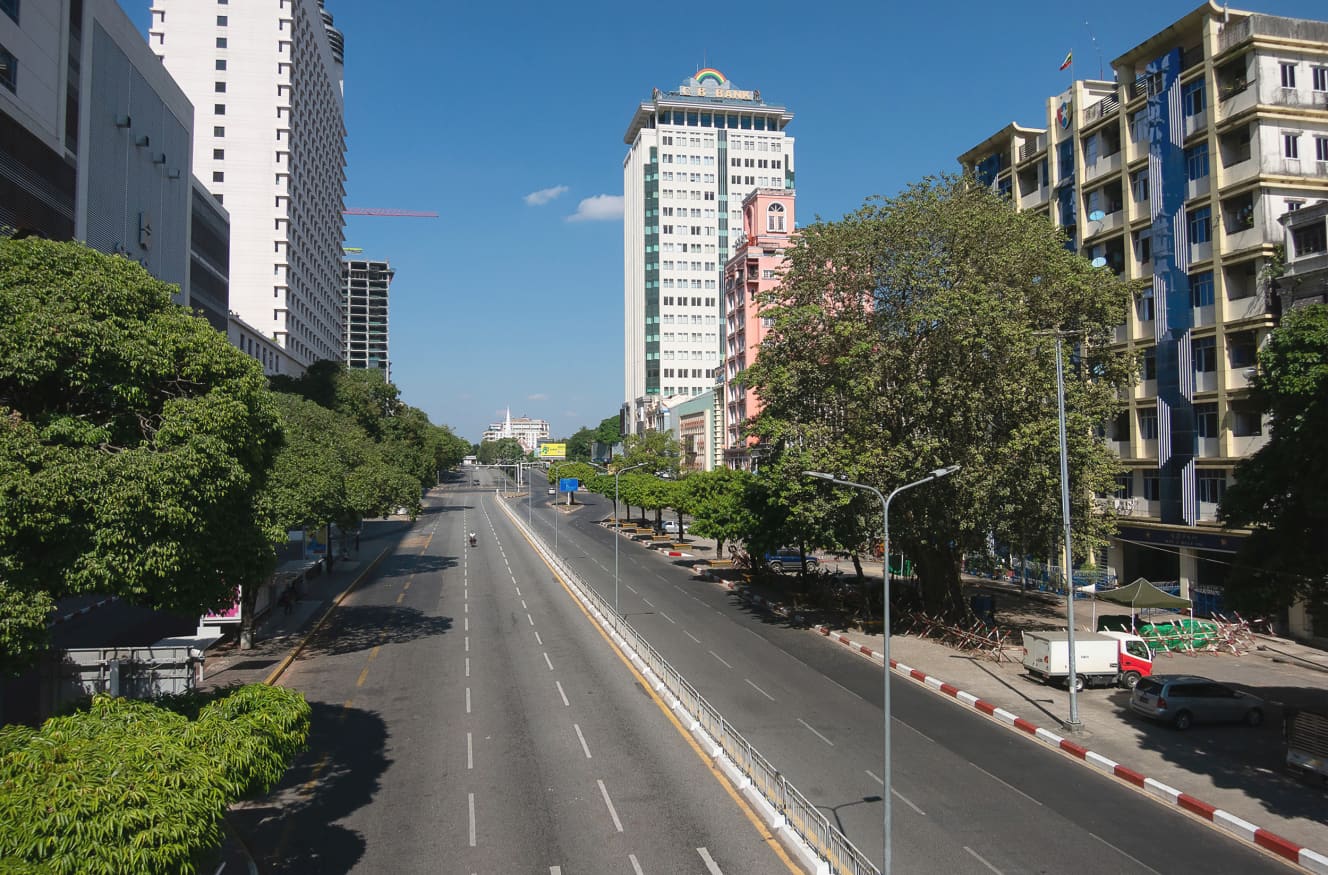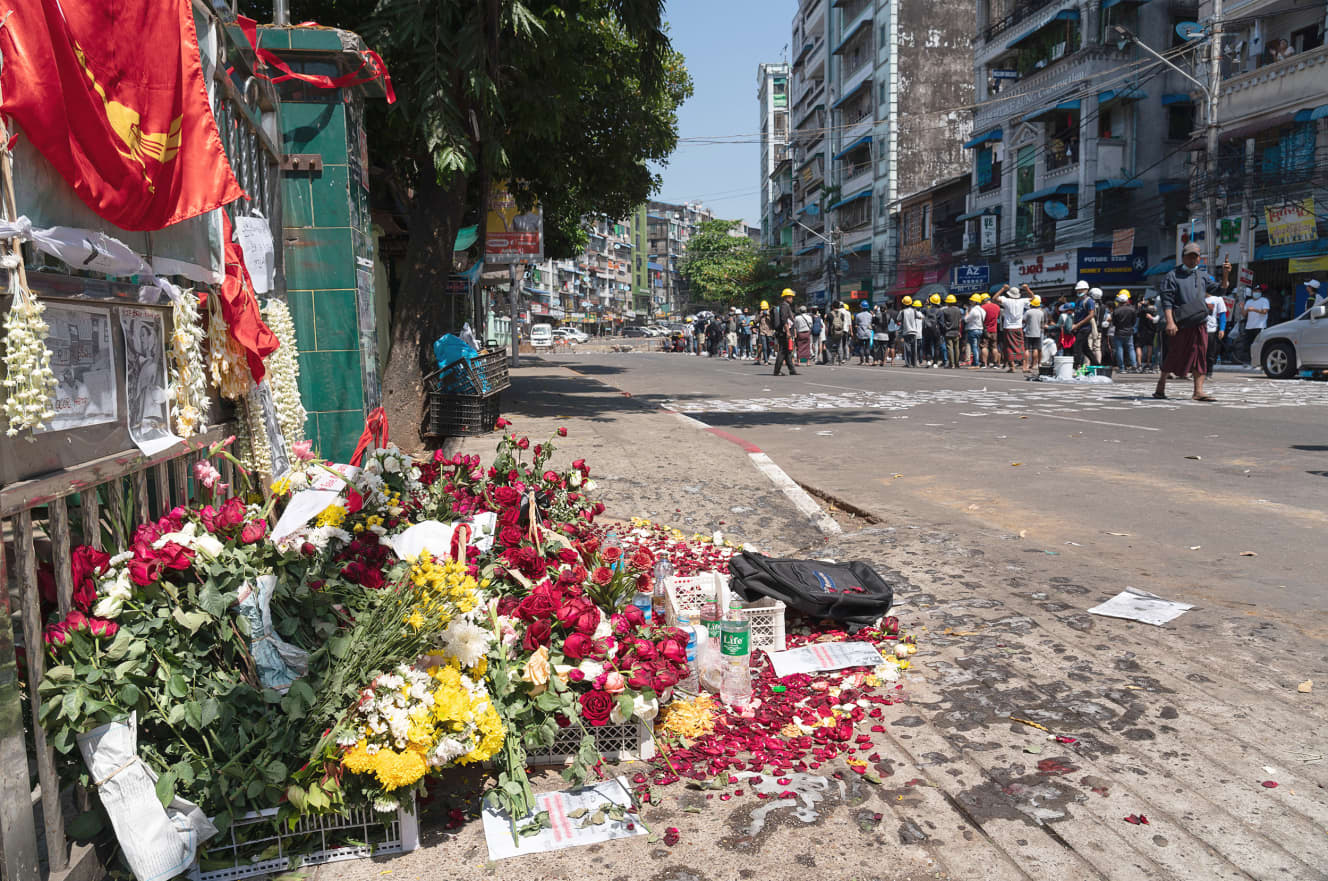Japanese Residents Reveal the Terrifying Reality of Myanmar’s Military Rule
Photo Reportage: Cell phones are tapped, ATMs at banks are completely shut down, people risk arrest just for holding a camera, and China is behind the rulers

One year has passed since the coup d’etat took place in Myanmar. In Yangon, the largest city in Myanmar, where large-scale protests were suppressed by the national army, many people were killed and the situation became bloody.
Mr. A, a Japanese man living in Yangon who has been observing the changes since before the coup, agreed to be interviewed on condition of anonymity.
The number of military trucks and soldiers seen on the streets has decreased compared to the days immediately after the coup, but sandbags are still piled up at military facilities and government offices, and soldiers are holding guns behind barbed wire fences. In downtown and other busy areas, the crowd has returned to 70-80%. It looks the same as it did before the coup, but the situation inside is different.
Although ordinary people can still be seen in the markets and restaurants, the scene is only a return to “superficial peace,” he said.
The large scale protests that filled the city have all but died out. Instead, small demonstrations are now taking place. These are guerrilla-style demonstrations in which a few young people hold up banners and chant “Democracy for Myanmar” before disbanding within a few minutes. On December 10 last year, to coincide with the UN-declared World Human Rights Day, a “silent strike” was also held, where people refrained from going to work or going out to show their protest. In addition to these activities, some of the pro-democracy youth have also turned to armed struggle against the national army.
Last May, the pro-democracy group organized the National Defense Force (PDF) with the Karen National Union (KNU) and other ethnic minority armed groups. (PDF). The youths received military training from the KNU and joined the PDF. Mr. A explains.
In Yangon, too, brief firefights are frequent, with PDF youths throwing bombs at police stations and shooting at them. I once walked past a bombing site when I was out. I heard a loud bang, so I went to check it out and found pieces of metal scattered around and the door of a parked car dented.
According to a local human rights organization, the Association for the Support of Political Prisoners, as of January 22, 1,493 people have died as a result of the military crackdown, and 10,000 or 1,737 people have been detained. According to the Association for the Support of Political Prisoners, a local human rights organization, as of January 22, 1,493 people have died as a result of the military crackdown, with 10,737 people detained. One of Mr. A’s friends, a Myanmar man, was also detained and is in prison.
Mr. A’s friend, a Myanmarese man, was also detained and is in prison. He seems to be in good health, but he has lost a lot of weight.
Due to the coup, there are many restrictions on his daily life. The curfew (10 p.m. to 4 a.m.) is still in effect. Mr. A continued, “You can’t carry an SLR camera around town, and you have to be careful about talking on your cell phone because of the risk of being tapped by the military.
Mr. A continued, “Because of this tense situation, when I go into a restaurant, the waiters don’t smile as much. In the past, they would smile at you when you talked to them, but now they are wary that you might be a member of the national army.
Withdrawing cash also continues to be inconvenient. All ATMs at banks were shut down last fall. If you make an appointment with a teller to withdraw money, the maximum amount of money you can withdraw in a week is set at about 13,000 Japanese yen.
To be honest, it’s hard for Japanese people to withdraw money with that limit. It is possible to withdraw money by asking a broker, but there is a fee of several percent. That’s why everyone is having trouble finding cash. In terms of daily life, power outages are getting worse, so I bought a car battery for emergencies.
Myanmar continues to be plagued by warfare and restrictions on daily life due to the coup. The United States and Europe are imposing economic sanctions and promoting democratization, but the national army remains unmoved. The shadows of China and Russia flicker in the background.
On February 1, it will be one full year since the outbreak of the conflict, but there is still no prospect of a resolution.



From “FRIDAY” February 11, 2022 issue
Reporting and writing by: Takehide Mizutani
Nonfiction writer